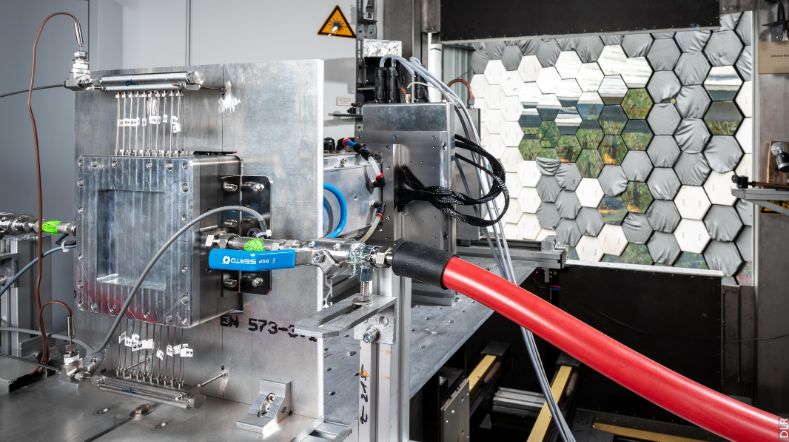
Sunlight as a source of energy
Status project
February 1, 2024 - January 31, 2027
In cooperation with
9 project partners
There is a strong demand from the chemical industry to develop technologies to produce green chemicals and fuels, while reducing CO2 emissions. In the INTERREG project FOTON, 9 project partners have the ambition to develop high-tech systems and materials for sunlight-driven sustainable processes that contribute to a climate-neutral industry.

As a society, we currently face two major challenges: securing our future energy supply by transferring from fossil fuels to sustainable energy sources and reducing emissions of the greenhouse gas CO2. Only in this way can we achieve the objectives of the Paris climate agreement; limiting global warming to a maximum of 1.5°C in the 21st century and achieving net zero CO2 emissions by 2050. The FOTON project addresses both challenges.
No energy loss on conversion and no transport required
The direct use of sunlight as an energy source for chemical processes has a number of advantages compared to the conventional use of sustainably generated electricity.
First, the high energy efficiency when using sunlight directly: there is no energy loss when converting sunlight into electricity, or less energy loss if the electricity is generated in the chemical reactor itself.
Transport of electricity is not necessary and direct use is made of sunlight for the local production of green hydrogen and methanol. This decentralized production prevents high costs associated with infrastructure.
Production of green methanol and green hydrogen
Three pilot demonstrators show that sunlight can be used as a sustainable energy source for the production of green methanol and green hydrogen in a technologically efficient, energy-efficient and financially feasible way.
The research within Interreg FOTON forms the basis for the future translation into an industrial process and offers commercial opportunities for manufacturers of materials and equipment and chemical companies in the region.
Would you like to know more about project FOTON or the research program?
Get inspired
Renewable syngas: essential for industrial decarbonisation


Western North Brabant becomes hotspot for biobased building blocks for the construction industry


New facility to develop circular plastics on an industrial scale


Time setters: Smart windows bring climate-neutral living a step closer


Smart windows make climate-neutral living more attainable



